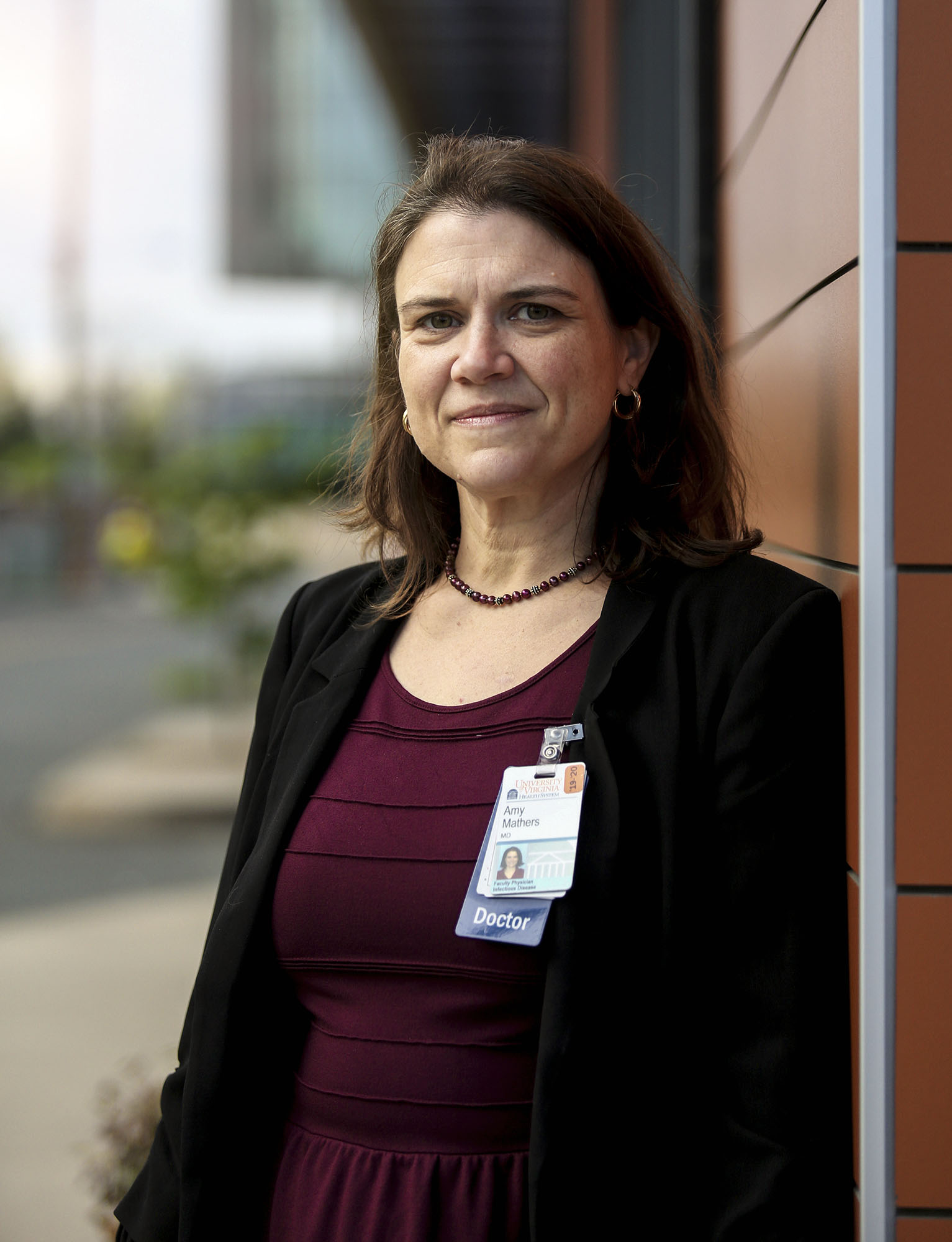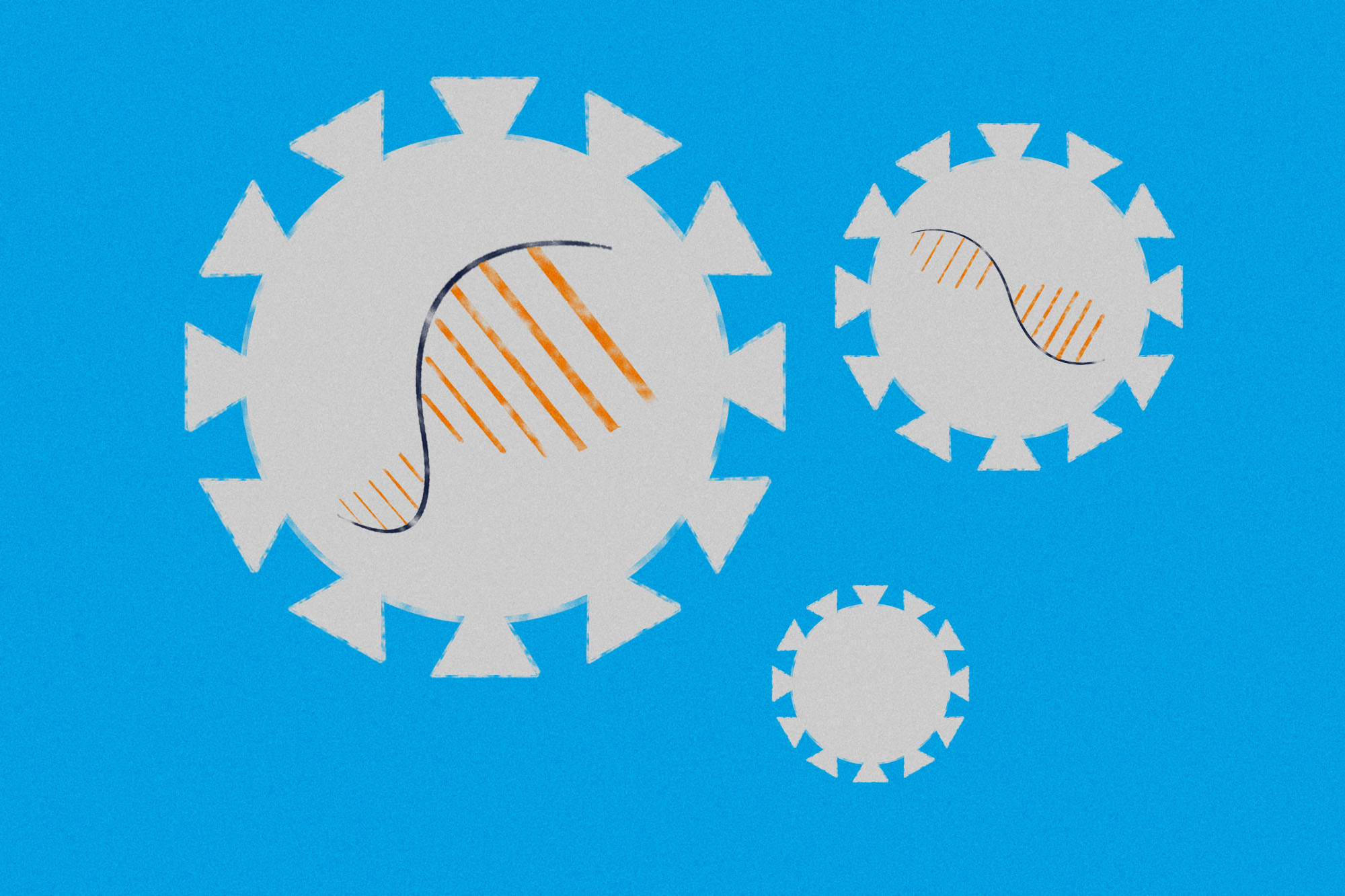Already the winner of this year’s Edlich-Henderson Innovator of the Year Award at the University of Virginia, Dr. Amy Mathers isn’t stopping when it comes to the fight against COVID-19.
The associate director of clinical microbiology and an associate professor of medicine and pathology is at it again as a new variant has her team at UVA Health back in the lab.
Omicron has now been identified in the United States. How is it being researched on Grounds? UVA Today caught up with Dr. Mathers to find out.
Q. The rise of the omicron variant is relatively new. When did the UVA Health lab team begin working on sequencing COVID samples to look for its presence?
A. The first cases of the omicron variant were announced on Nov. 25 and I did a personal query on Saturday (Nov. 27). And then we confirmed that we didn’t have any cases by Nov. 29.

Q. And that process will continue daily?
A. Yep, we’re sequencing stuff every day.
Q. What goes into that sequencing process?
A. Prior to our identification of omicron, no omicron variant existed. Since you built your computer system based on stuff you were seeing in October, you needed to make sure your computer code system actually worked to detect omicron.
So we went back and we re-ran all of our data; we checked our code and we confirmed that, yes, we do not have any omicron and have never seen that virus or that variant. And we also checked and we have confirmed that we have a system working that would identify and name omicron, if we came across it.

Dr. Amy Mathers is an infectious disease expert in the School of Medicine’s Department of Pathology. (Photo by Justin Ide)
The last thing we have to check is our methods. With all those mutations, we need to make sure that our current sequencing lab techniques work to amplify all of the different regions of the virus. And we confirmed that that is also true, that our current sequencing methods would be predicted to detect and successfully sequence omicron.
Q. What is the difference in sequencing for the omicron variant as opposed to the delta variant?
A. It’s all about the way that the computer code looks for the differences in the virus compared to the original Wuhan strain. The sequencing is actually exactly the same. And we sequence a positive specimen for SARS-Cov-2 the exact same way if it’s a delta or an omicron or whatever variant we don’t know.
We then put it into a computer algorithm that was built by Hardik Parikh, who’s a bioinformatics expert in my lab group, and he then can make sure that we’re querying for all the critical mutations for the different variants of concern or variants of interest. We then take that result and report it out as a result – “This is omicron, this is delta, this is beta …”
Q. Based on early research, how does the omicron variant compare to other variants?
A. All these variants of SARS-Cov-2 have all these unique mutations. Actually, the alpha variant and omicron have some things in common. They’re more transmissible. We don’t know if omicron is more transmissible or not yet, but they have the same mutations that might predict transmissibility, meaning that there are mutations in omicron and alpha that make it so that the virus binds more tightly and then replicates efficiently, so it can be spread more widely.
Q. Since the onset of the pandemic, whether through the creation of in-house testing, distributing nasal swabs, developing solutions to test wastewater and now this sequence testing for variants, you’ve been dedicated to finding answers against the fight against COVID-19. What’s been the most rewarding part of this seemingly never-ending process?
A. The coolest science stuff that we do is sequencing. The thing we’re most uniquely doing is sequencing. And a lot of people are doing it, but we’re just really well-positioned.
What I think is probably the most rewarding is just being able to take my lab team’s entire skill set and pivot it and help prevent disease transmission or to help save lives. The ability to take your infrastructure, your know-how, your everything and be able to apply it in a way that helps people and make the world a little bit better for everybody, that’s really rewarding. That’s what you do it for, right?
Media Contact
Article Information
December 1, 2021
/content/omicron-variant-wont-slip-past-uva-lab

